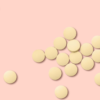How Long Does It Take to Pee After Drinking Water: Exploring the Urination Process
Have you ever wondered how long it takes for your body to eliminate the water you’ve consumed by urinating? The timing of when you need to visit the restroom after drinking water can vary from person to person. In this article, we’ll delve into the factors that influence how long it takes to pee after drinking water and what you can expect from the urination process.
Understanding the Urination Process
Before we discuss the time it takes to urinate after drinking water, let’s understand how the body processes liquids:
- Ingestion: When you drink water, it enters your stomach.
- Absorption: Water is absorbed in the stomach and small intestine and enters your bloodstream.
- Filtration: Blood travels to the kidneys, where excess water and waste products are filtered out to form urine.
- Storage: Urine is stored in the bladder until it reaches a certain volume, triggering the urge to urinate.

Factors Influencing the Timing
Several factors can influence how long it takes to pee after drinking water:
- Hydration Level: If you’re adequately hydrated, your body may process the water more efficiently, leading to quicker urination.
- Body Size: Larger individuals may hold more urine in their bladder, potentially leading to a longer time between drinking water and urination.
- Metabolism: A faster metabolism may result in quicker absorption and filtration of water, leading to faster urination.
- Fluid Intake: The volume of water you drink and how quickly you consume it can affect the timing of urination. Drinking a large glass of water quickly may result in a more immediate need to urinate.
- Age: As people age, their bladder capacity may decrease, potentially leading to more frequent urination.
Average Time to Pee After Drinking Water
On average, it may take anywhere from 30 minutes to 2 hours for your body to process the water you’ve consumed and signal the need to urinate. However, individual variations are significant, and some people may experience this process more quickly or slowly.
Tips for Healthy Hydration
- Listen to Your Body: Pay attention to your body’s signals for thirst and urination. This can help you maintain proper hydration without overloading your system.
- Stay Hydrated: Aim to drink an adequate amount of water throughout the day to support your overall health and well-being.
- Consider Timing: If you have an upcoming event or activity where restroom breaks may be limited, plan your fluid intake accordingly
The time it takes to pee after drinking water varies from person to person and can depend on various factors, including hydration level, body size, and metabolism. It’s essential to stay hydrated and pay attention to your body’s signals for thirst and urination to maintain optimal health. If you ever experience significant changes in your urination patterns or discomfort, consult a healthcare professional for guidance.


